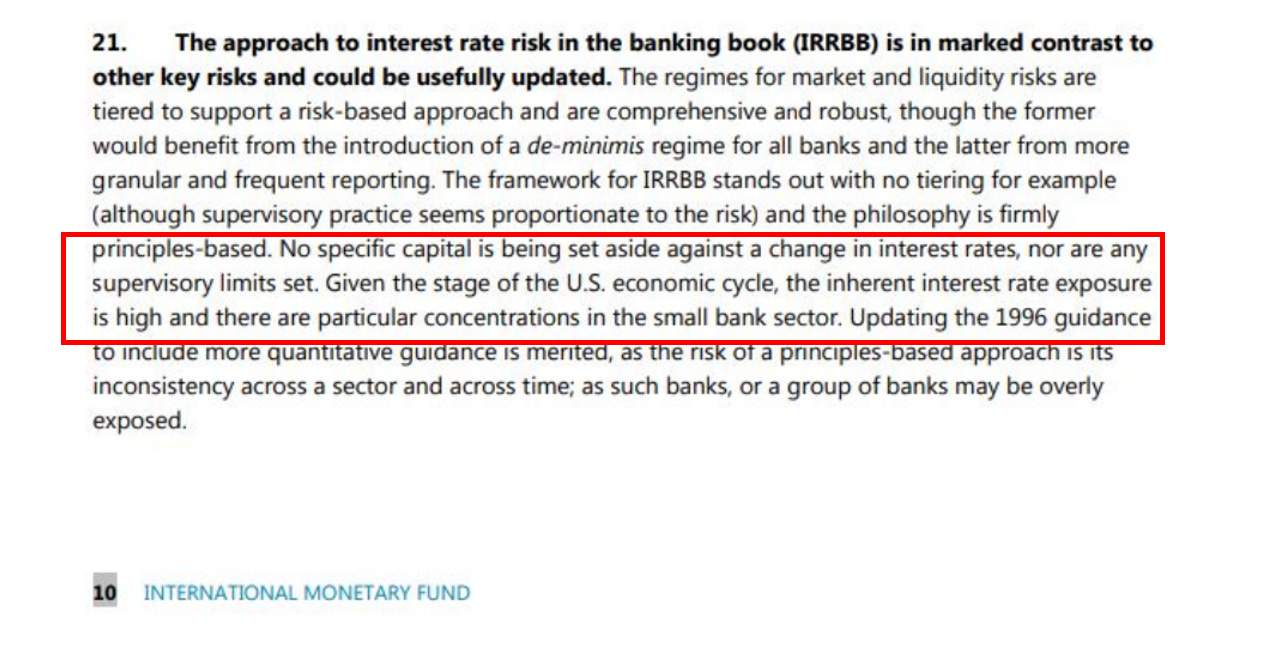Market pressures on U.S. banks are now spreading to Europe, where the already troubled Credit Suisse (NYSE:CS) asked the Swiss government for help and got a liquidity boost.
Investors are asking the tough questions now, which means the moment of truth looms large. Data-driven, holistic macro analysis is crucial to correctly answer these questions.
In this piece, we will:
- Review the current banking situation, assessing the widely different degree of tightness in regulatory and accounting frameworks U.S. and European banks are subject to;
- Do the heavy lifting on digging up the real metrics you need to monitor when assessing banks' vulnerability to higher interest rates (spoiler: not HTM unrealized bond losses)
Let’s review where we stand, starting from the U.S.
The U.S. banking regulation and accounting frameworks have some pretty big flaws.
Yep, you read that right.
1. Banks With a Balance Sheet Below $250B Can Act a Lot Like Cowboys
No need to adhere to NSFR (Net Stable Funding Ratio), a rule that forces large banks to have a good proportion of their liabilities in sticky, long-term funding, which limits liquidity risks.
No need to adhere to LCR (Liquidity Coverage Ratio): ‘’small’’ banks can buy a disproportionate amount of less liquid securities like corporate bonds or mortgage-backed securities instead of Treasuries.
The problem is that a $249B balance sheet bank is not small. For reference, a top 3 German bank has a balance sheet of less than $200B– seriously, top 3 in Germany.
This lax regulatory treatment for ‘’small, but not so small’’ banks is very dangerous.
2. Even Large Banks Booking Bonds in HTM are Disincentivized to Hedge Interest Rate Risks
HTM = friendly accounting: book bonds there, forget about them as they are valued at amortized cost. Prudent risk management still suggests you should hedge interest rate risk.
Yet, U.S. accounting rules disincentivize interest rate hedging for HTM bonds – nuts. But the cherry on the cake…
3. No Proper Interest Rate Risk Stress Testing
Guys, this is out of this world.
As we will discuss, Europe has quite an extensive framework to stress test the interest rate risk that European banks take on their aggregate balance sheets (the net exposure deriving from loans, mortgages, bond investments, bond issuance, long-term liabilities, and swaps).
It’s called IRRBB (Interest Rate Risk in Banking Books) stress-testing. The U.S. equivalent? It doesn’t exist!
Here is the IMF calling U.S. regulators out on the topic:

Please take a second to reflect on how bad this is. ‘’Small’’ U.S. banks are subject to much laxer regulatory requirements.
But even large U.S. banks are disincentivized from hedging rate risk on HTM bonds, and even worse, they are not subject to extensive stress testing on the overall interest rate risk they run on their balance sheets.
Europe has much tighter regulatory standards and accounting framework, and yet the panic seems to be spreading there too.
This article was originally published in The Macro Compass. Come join this vibrant community of macro investors, asset allocators, and hedge funds - check out which subscription tier suits you the most using this link.
